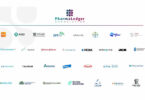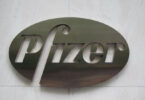Yesterday the U.S. Food & Drug Administration (FDA) announced plans to pilot new technologies, including blockchain, to help in the track and trace of pharmaceuticals. In 2013 the US introduced the Drug Supply Chain Security Act (DSCSA) with the aim of controlling the rampant counterfeit drug market which is estimated at $200 billion globally. To address this need, the pharmaceutical supply chain needs to become fully interoperable. That involves sharing information between manufacturers, repackagers, wholesale distributors, dispensers and their providers.
The announcement also points to the FDA piloting food traceability projects. Late last year the FDA hired Frank Yiannas as Deputy Commissioner, Food Policy & Response. He previously headed food safety at Walmart for a decade, and Walmart is one of the key partners in the IBM Food Trust blockchain initiative.
The FDA is soliciting applications for participation in the pilots.
The drug counterfeit problem
The DSCSA legislation is being phased in over ten years with this year’s deadline focused on returned drugs. Drugs that are returned are often re-sold rather than being destroyed. There’s a need to verify that those returned items are not counterfeit, before being re-sold. The proportion of drugs is small at 2-3% but amounts to almost $7 billion a year.
There are many initiatives aimed at addressing the DSCSA requirements. For example, SAP recently launched its blockchain pharmaceutical traceability solution, a co-innovation with AmerisourceBergen, Boehringer Ingelheim, GlaxoSmithKline, Merck and others.
San Fransisco based startup Chronicled runs the MediLedger Project which provides a complimentary blockchain solution. It’s working with two of the biggest wholesalers, AmerisourceBergen and McKesson as well as top ten drug companies Genentech, Pfizer and Gilead.
But not everyone is confident that the industry is moving in the right direction. Particularly for the full implementation by 2023. “I don’t think there’s any chance we’re going to meet the 2023 DSCSA deadline even with a non-blockchain solution,” Jeffrey Stollman, an industry consultant told Ledger Insights last year. He believes the challenge is governance. “You need to have some rules, and there’s no organization structure right now to create those rules.”
The FDA doesn’t mention governance, but says that the pilot is “intended to help identify and evaluate the most efficient processes and/or systems to operationalize supply chain security requirements.” And it wants to share the learnings with the industry.
FDA statement
FDA Commissioner Scott Gottlieb made the following statement:
“As part of our ongoing efforts to protect our nation’s drug supply, today, we’re giving industry an opportunity to test new technologies that can help spur greater accountability for participants in the supply chain and improve our ability to trace prescription drugs at every point in the distribution chain.”
“Using new innovations, we believe we can improve the overall security of our closed system and improve our ability to prevent the introduction of illegitimate products, better detect the introduction of illegitimate products, and enable stakeholders and the FDA to respond more rapidly when such products are found.”
“We recognize that tracking and tracing products is critical to industry’s ability to detect and remove potentially dangerous drugs from the drug supply chain. This pilot is one of many steps we’re taking to foster innovative ways to improve the security of the drug supply.”
“We’re also focused on making improvements across the other products we regulate, especially related to food and our ability to address foodborne outbreaks. We’re invested in exploring new ways to improve traceability, in some cases using the same technologies that can enhance drug supply chain security, like the use of blockchain.”
“To advance these efforts, the FDA recently recruited Frank Yiannas, an expert on the use of traceability technologies in global food supply chains. He’ll be working closely with me on ways for the FDA to facilitate the expansion of such methods, such as blockchain technology, to further strengthen the U.S. food supply. Under his leadership, we’ll continue to leverage all tools available to ensure greater accountability.”
“For the drug track-and-trace system, our goals are to fully secure electronic product tracing, which provides a step-by-step account of where a drug product has been located and who has handled it; establish a more robust product verification to ensure that a drug product is legitimate and unaltered; and to make sure that any party involved in handling drugs in the supply chain must have the ability to spot and quarantine and investigate any suspect drug.”
“We’re committed to staying at the forefront of new and emerging technologies and how they might be used to create safer, smarter and more trusted supply chains to better protect consumer safety and ensure the integrity of the high quality of products they deserve.”
Related articles
Fears pharma sector will miss interoperability deadline, blockchain or not
SAP leads Pharma Supply Chain blockchain
SAP’s pharmaceutical blockchain goes live
MediLedger: Pharmaceutical industry’s blockchain network






